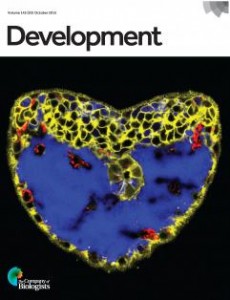 A tipster’s complaints have led to the retraction of two papers in the Journal of Neurosurgery for “plagiarism, duplicate publication, and copyright infringement.”
A tipster’s complaints have led to the retraction of two papers in the Journal of Neurosurgery for “plagiarism, duplicate publication, and copyright infringement.”
The corresponding author for both papers, Hung-Chuan Pan of Taichung Veterans General Hospital, had contacted the journal about publishing an erratum for one of the articles when the journal was tipped off by an email pointing out deeper problems in the two retracted papers.
The tipster provided evidence that alleged “a violation of ethics on the part of the authors,” according to the communications manager at the JNS Publishing Group, Jo Ann Eliason.
Both retraction notices, published October 2, detailed a number of “similarities” and “overlaps” in the papers.
Continue reading Authors retract two neuroscience papers for duplication and plagiarism






 We’ve uncovered a “
We’ve uncovered a “